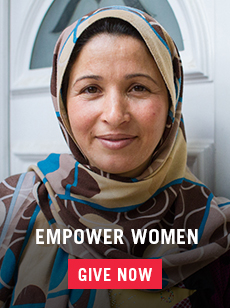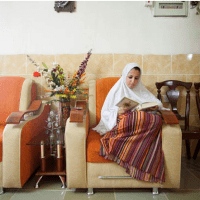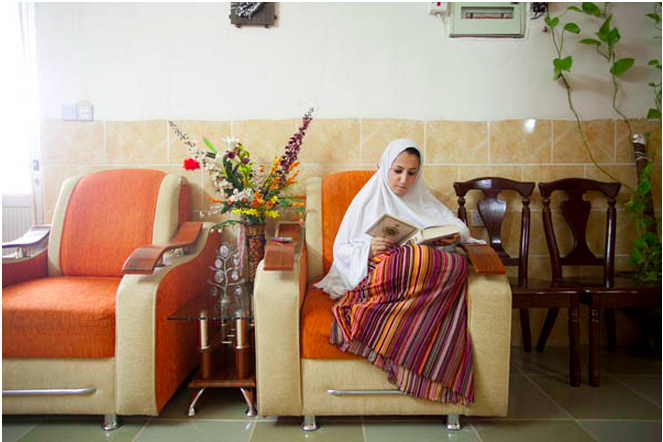
The streets were absolutely silent. No kids running around, no mothers yelling after them. It was a little after one on the first day of Ramadan and the whole neighborhood seemed to be telling me, “For goodness’s sake, get out of this heat, go back inside and preserve what few bodily fluids you have.”
But I had a specific mission this day. Having been raised a Christian in the Midwest of the United States, I have very little first-hand experience with Islam. So on this day I was headed to a friend’s home to learn more about this Ramadan business.
Medya and her family welcomed me into their quieted home. The soporific atmosphere had already gotten to her older brother, who lay sleeping on the couch, while other family members wandered around in their house clothes alternating between reading the Koran and staring into space. So this is it? I wondered. Thirty days devoted to inactivity and religious texts?
If there’s one thing I’ve picked up on about my Muslim friends its their whole-hearted love and respect for God’s will. They are intensely devoted to knowing it, following it and furthering it. I soon discovered that the scene in this room demonstrated no less than this.

For the next hour and a half Medya and her siblings (and Google Translate) walked me through the ins and outs of Ramadan. I learned that any good deed done during these 30 days will count for many times over during the rest of the year. They explained people will be more generous, more kind and more caring during this time than any other.

Ramadan is “the month of forgiveness”—a time of fasting and petition before the Most High. A sin forgiven during Ramadan is a sin forgiven 100 times over for the next year. And as Medya reminded me, “God is at all times merciful.”
Similarly, if you read the Koran during these 30 days it will be to God as if you’ve read it 30 times. (Medya and her sisters will each read the Koran twice this year—to build a credit of 60 times). As the afternoon wound down (if that’s possible) they began explaining the concept of “Zikat”. It’s a percentage of all your “saved” assets that must be given to the poor. Any money you’re not using, gold you’re not wearing, or livestock you shepherd must be accounted for. 1 oz of silver for every 140 oz you have, 2.5% of your gold, 1 sheep for every 40.
This rule instated by the prophet Muhammed himself has changed some over time. In most Muslim countries, there is no longer a “Ministry of Zikat” to monitor and distribute these offerings. Instead each family brings their personal percentage of wealth directly to a family in need. “In need” ranges anywhere from abject poverty to refugees to those people displaced because of volunteer work or schooling.
As we covered this last category, Medya’s brother looked at me and laughed, “Lydia—that’s you! Maybe you will get a sheep.”


